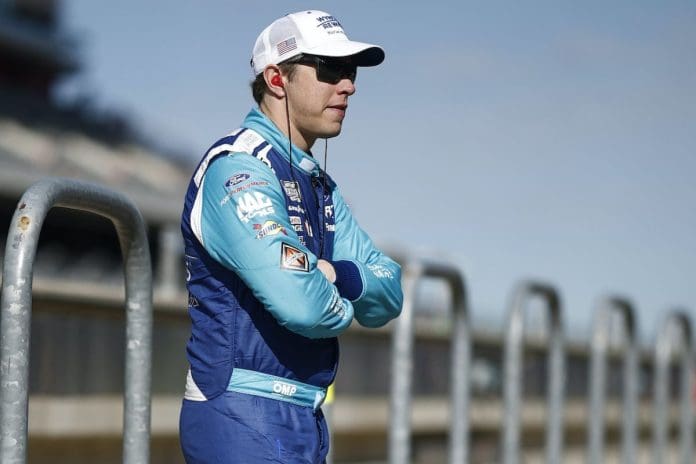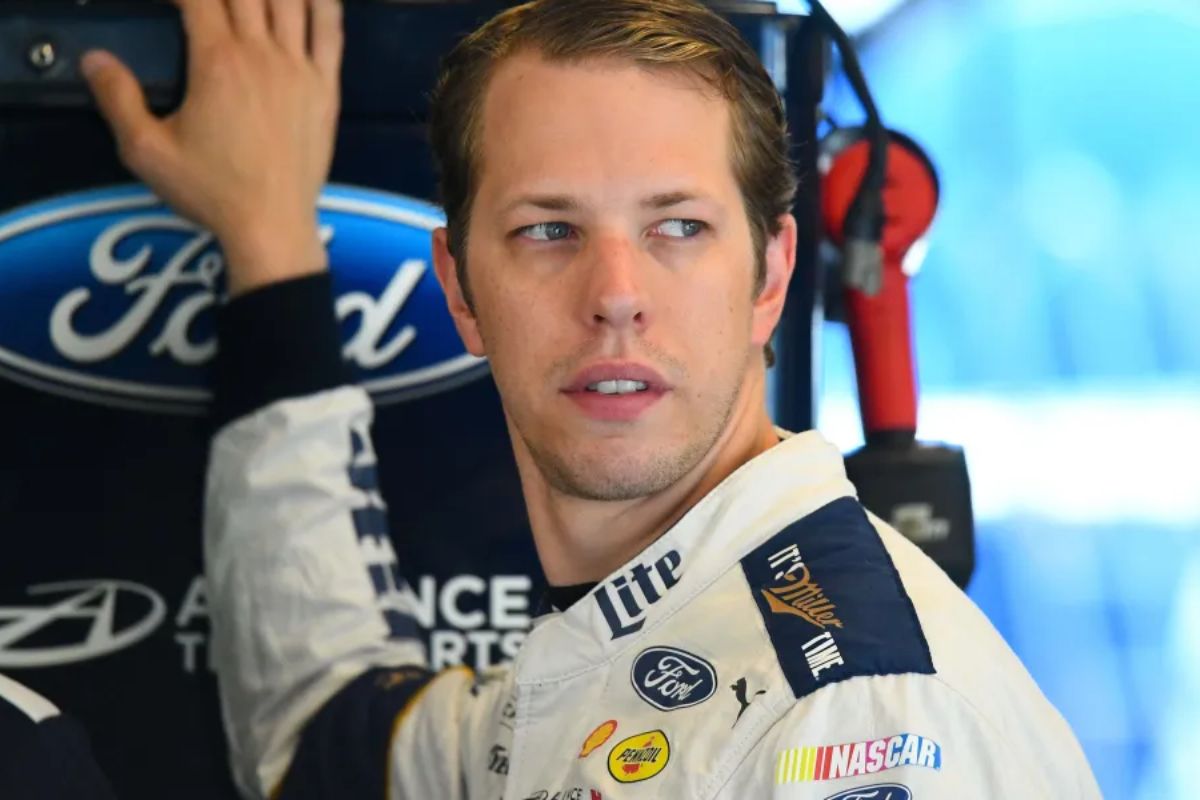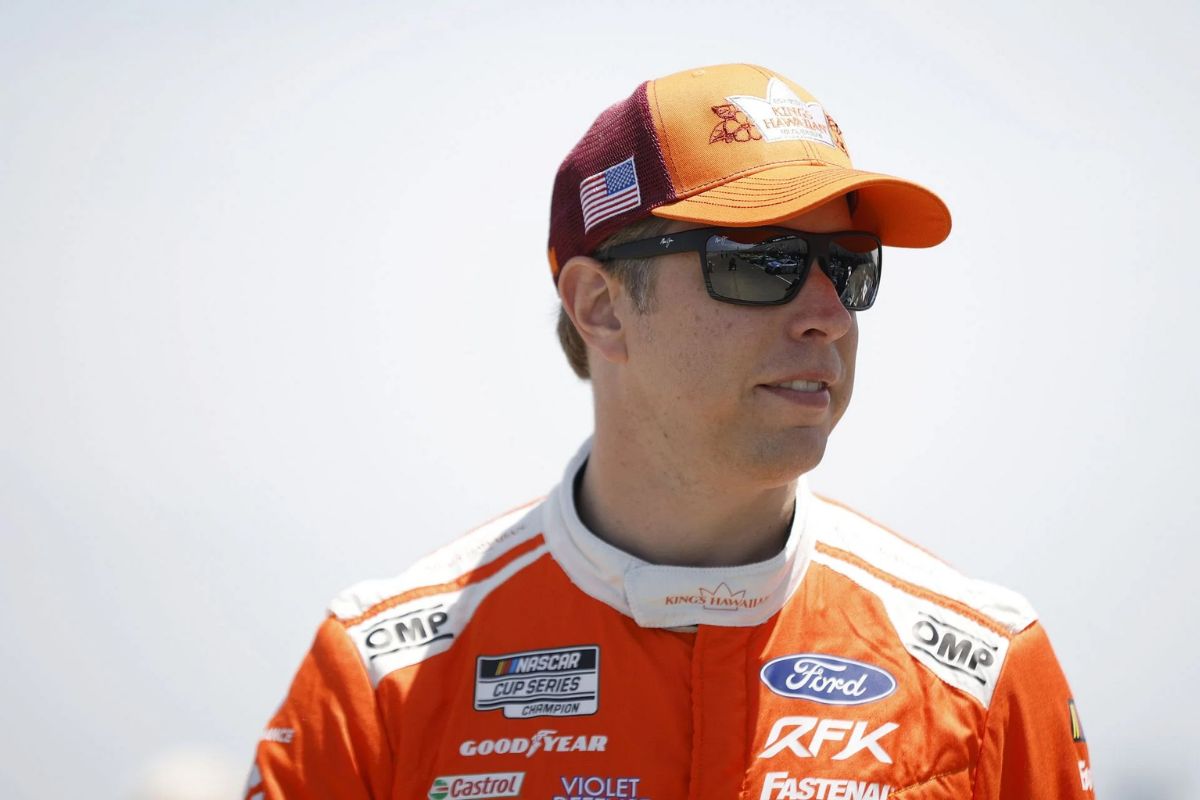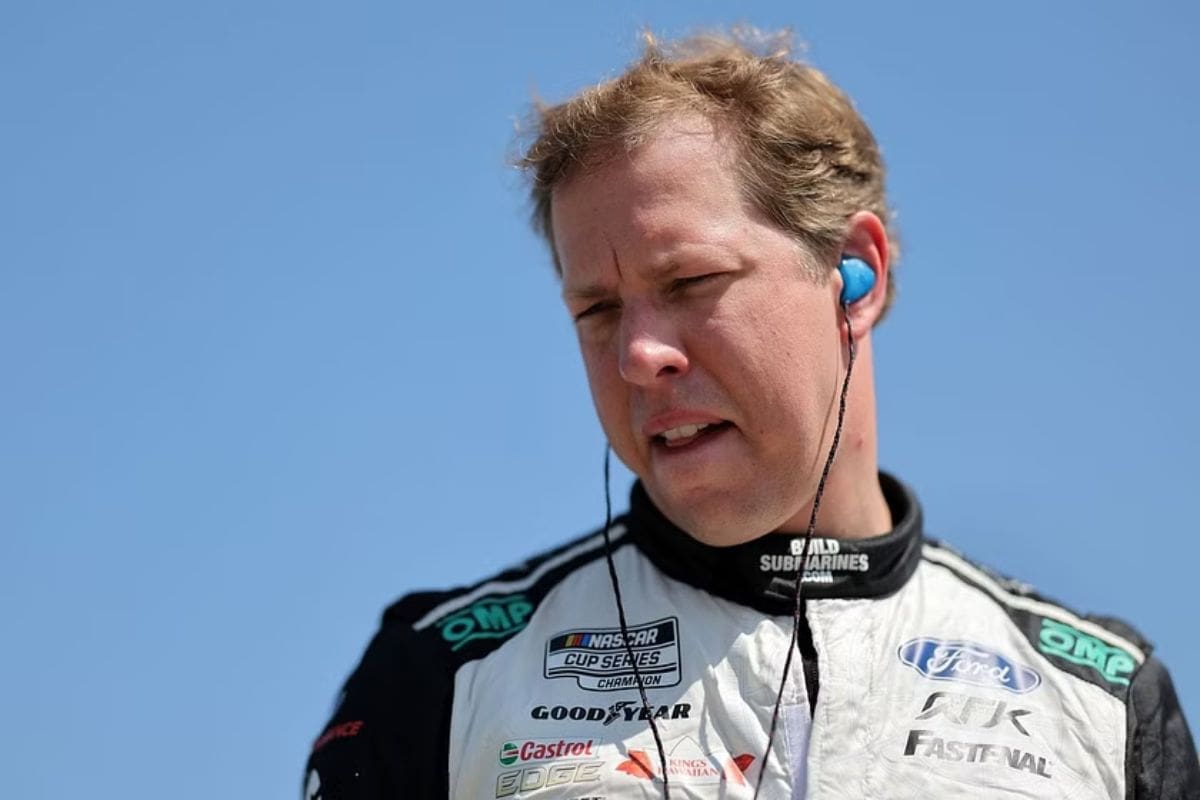Brad Keselowski Reveals 30Mn Dollar Roadblock: In a recent disclosure, Brad Keselowski highlighted a formidable $30 million barrier impeding RFK Racing‘s ambition to acquire an additional NASCAR charter. This disclosure not only casts a spotlight on the inflated market prices that now typify the acquisition of NASCAR charters but also brings into question the viability of expansion strategies under such financial strains. As teams grapple with these escalated costs, the broader implications for the competitive balance and the strategic dynamics of NASCAR warrant a closer examination.
Key Takeaways
- Brad Keselowski identifies the high cost of NASCAR charters, reaching up to $30 million, as a major obstacle for RFK Racing’s expansion.
- The rising charter prices reflect increased market value and limited availability, complicating RFK Racing’s acquisition plans.
- Keselowski remains optimistic despite financial challenges, aiming to secure a third full-time charter for competitive continuity.
- High charter costs necessitate strategic financial management and potential adjustments in team investments.
- The $30 million price tag represents broader economic challenges within NASCAR, influencing team strategies and the sport’s future dynamics.
RFK Racing’s Charter Pursuit
RFK Racing, co-owned by Brad Keselowski, is actively engaged in intricate negotiations to secure an extra full-time NASCAR charter, a critical move amid the expiring current agreement and the broader charter standoff impacting the sport. The pursuit of this charter is not merely a transaction but a strategic endeavor vital for the team’s competitive continuity and financial viability in NASCAR’s tightly regulated ecosystem.
Navigating through these negotiations, Keselowski’s stance fluctuates between optimism and cautious realism, reflecting the complex dynamics at play. The expiry of their current charter poses a significant strategic crossroad; securing a new one is essential not just for maintaining their current racing operations but also for potential expansion. This move is symbolic of a broader chess game involving multiple stakeholders within the NASCAR community, where charters are not just assets but lifelines to competitive viability and commercial success.
The negotiations are further complicated by the evolving landscape of the NASCAR charter system, which dictates the operational framework for participation and competition. Keselowski’s diverse responses to media inquiries highlight the multifaceted nature of these discussions, which extend beyond mere financial considerations to encompass regulatory, strategic, and operational dimensions.
Rising Charter Prices Pose Challenges
Amid the strategic complexities of securing a new charter, another significant challenge emerges for Brad Keselowski and RFK Racing: the escalating costs of NASCAR charters. The steep increase in charter prices has become a formidable barrier, impacting not just RFK Racing but numerous teams across the spectrum. This surge is attributed to the limited availability of charters and the growing recognition of their intrinsic value as a guaranteed entry into premier NASCAR events.
The escalating costs reflect a broader trend within the sport, where the economic dynamics are shifting dramatically. Previously, the market for charters was more accessible, but with NASCAR’s rising popularity and the consequent increase in sponsorship and media rights deals, charters have become hot commodities. This inflation is not merely a reflection of market demand but also of the strategic importance these charters hold.
For Keselowski and RFK Racing, the challenge is not only financial but strategic. The decision to invest heavily in a charter must be weighed against potential returns. With prices reportedly soaring as high as $30 million, the calculus involves not just the immediate fiscal outlay but also long-term implications for team stability and growth.
Challenges and Optimism for RFK Racing
Sailing through the turbulent waters of financial and strategic challenges, Brad Keselowski maintains a resilient optimism about securing a third full-time charter for RFK Racing. Despite the formidable $30 million roadblock, Keselowski’s comments reflect a blend of realism and hopeful resolve. This duality is fundamental in understanding both the current state and the potential future trajectory of RFK Racing under his stewardship.
“Yes and no,” Keselowski said, “I mean if you’re looking for the right opportunity… It’s difficult because you know um there’s different people that maybe are in the market, or maybe aren’t in the market. And you don’t really know. It’s not a very transparent process, right?“
“But you know it’s hard for anybody to fork out the, you know, 10-20-30 million whatever, you believe on any given day. And for us, I think it’s just as hard so I don’t really have any news here. “
The optimism of Keselowski a seasoned driver and now an influential team co-owner, is not unfounded but is rather built upon a strategic understanding of NASCAR’s evolving landscape and RFK Racing’s capabilities.
“It’ll get done. Why not? Be a fun process. But it’ll get done.”- Keselowski
- Financial Agility: RFK Racing must navigate the high seas of escalating charter costs, which have soared to between $10 and $30 million. This financial flexibility will be vital in managing current assets and potential investments effectively.
- Strategic Acquisitions: Securing a subsequent charter involves not just financial investment but also strategic foresight. The acquisition would expand RFK Racing’s competitive edge and presence in the series, potentially increasing its marketability and sponsor appeal.
NASCAR’s Response and Team Demands
NASCAR faces mounting demands from team owners to reform the charter system, amid widespread concerns over its sustainability and financial implications for team development. The charter system, introduced to stabilize team entries and financial security, has paradoxically sparked significant unrest within the NASCAR community. Every seven years, team owners are necessitated to reinvest millions to secure their spots, a practice that many argue undermines long-term financial planning and the strategic allocation of resources towards performance enhancement and technological advancement.
The discontent depends on the transient nature of charters. Team owners suggest that a shift to permanent charters could radically transform their investment strategies, enabling a deeper, more sustainable commitment to competitive racing. This change would potentially alleviate the financial unpredictability currently plaguing teams, fostering a more stable environment conducive to growth and innovation.
Analyzing the broader implications, the proposed reform could lead to a significant restructuring of NASCAR’s economic landscape. Permanent charters would likely boost team valuations and attract more robust, long-term investment, potentially reshaping the sport’s competitive dynamics. Additionally, it could democratize racing, as financially secure teams could focus more on talent cultivation and technological innovations rather than on financial survival.
NASCAR’s Perspective and Season Outlook
While concerns over the charter system continue to stir debate, the focus shifts to how NASCAR plans to address these issues and the implications for the season ahead. The charter system, important for determining team stability and financial viability, has recently been under scrutiny for its perceived barriers to entry and competitiveness. As NASCAR progresses into the Kansas tri-oval track this Sunday, strategic adjustments and stakeholder engagement are expected to play key roles in shaping the future landscape of the sport.
“Ultimately when our owners look at where the sports potential is in terms of all the new media partners, the balance that we do have with linear and now being able to go with the Amazons, [TNT Sports], all the opportunities we have with content, I think they get it.”- NASCAR COO Steve O’Donnell
From a strategic standpoint, NASCAR’s approach to the ongoing controversy involves a multifaceted plan designed to integrate feedback from different stakeholders, including team owners, drivers, and sponsors.
- Review and Adjustment of Charter Allocation Policies: By reassessing how charters are awarded and maintained, NASCAR aims to improve fairness in team opportunities.
- Increased Transparency in Financial and Operational Aspects: This move will build trust among teams and fans, providing clear insights into decision-making processes.
- Engagement with Teams on Future Growth Strategies: Collaborative discussions are crucial for aligning the interests of all parties and paving the way for innovation in racing formats and fan engagement.
News in Brief: Brad Keselowski Reveals 30Mn Dollar Roadblock
RFK Racing’s strategic endeavors to acquire an additional NASCAR charter have been greatly hindered by the escalated costs, now estimated at $30 million. This development not only highlights the financial barriers within the competitive motorsport landscape but also emphasizes the critical nature of strategic asset acquisition in ensuring team viability and success. The situation necessitates a reevaluation of acquisition strategies amidst a dynamically shifting market, urging a balanced approach between financial investment and competitive aspirations.
Our Reader’s Queries
Q. Is Brad Keselowski an engineer?
A. While Brad Keselowski may not boast an engineering degree or a lengthy tenure in the field, his strategic acumen merits recognition. Many are prepared to nominate him as the Smartest Driver in NASCAR, owing to his meticulous planning and execution. Keselowski’s approach is marked by a well-thought-out strategy, which many regard as not just good, but exceptional in its design and implementation.
Q. What happened to Brad Keselowski racing?
A. Established in 2007, the team bore the ownership and oversight of NASCAR Cup Series and Xfinity Series champion Brad Keselowski. Notably, the team’s recent endeavors involved fielding the Nos. 19 and 29 Ford F-150s, with drivers Austin Cindric and Chase Briscoe at the helm. However, marking a pivotal moment, on August 17, 2017, Brad Keselowski Racing (BKR) disclosed its decision to halt operations following the culmination of the 2017 season.
Q. What car does Brad Keselowski own?
A. Brad Keselowski assumes a dual role as both a co-owner and full-time driver of the #6 car at Roush Fenway Keselowski Racing within the NASCAR Cup Series. With a championship pedigree spanning across two distinct racing series, Keselowski possesses a profound appreciation for the pivotal role manufacturing holds within various industries, notably within the realms of motorsports and automotive sectors.
ALSO READ: Brad Keselowski’s Throwback Paint Scheme Honors 1997 Castrol TOM’s Supra





